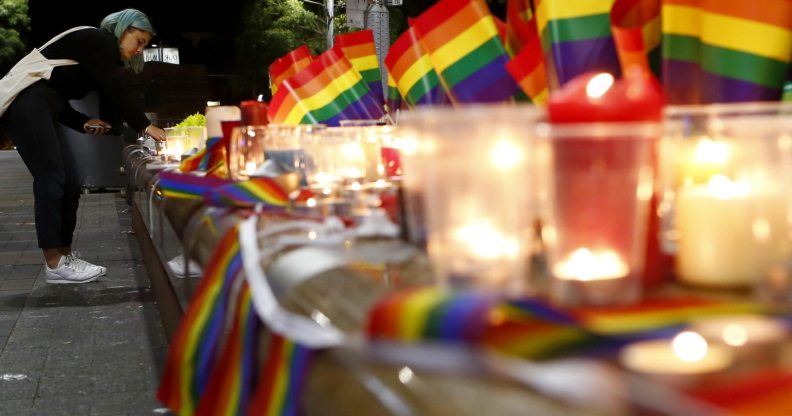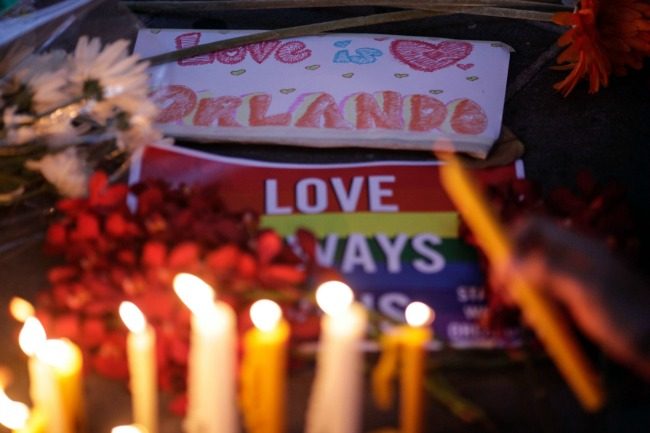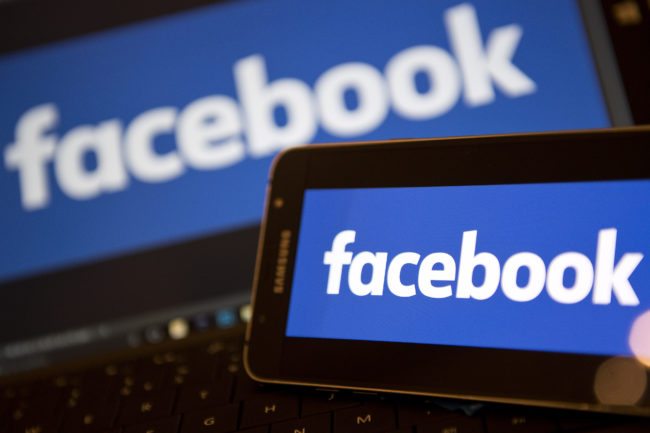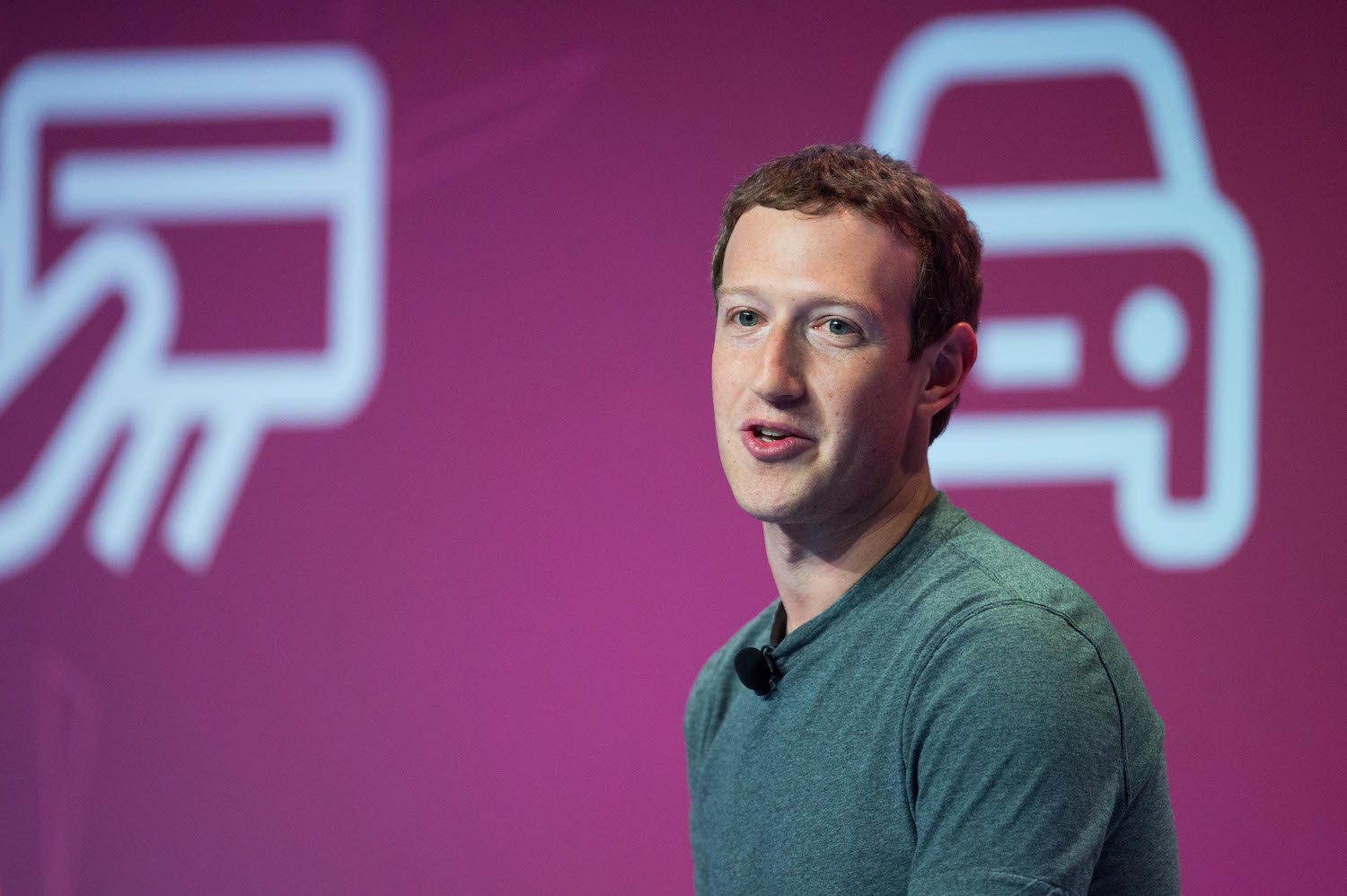Russian propaganda outlet ‘staged fake LGBT rights rally’ in the US

(Getty)
Facebook accounts run by Russian operatives staged real-life protests for a string of causes across the US, it has been revealed.
The social network has been rocked by a scandal this month after Facebook execs admitted that the Russian government had run online propaganda pages aimed at US citizens
Facebook has since confirmed it has shuttered hundreds of pages that were confirmed to be the product of a Russian government-run content farm.
As many as 126 million Americans saw content uploaded to Facebook by Russia-based operatives since 2015, the social network admitted.
Many of the pages appeared to be geared towards stoking divisions in US society.
The troll farm running pages targeting minority groups – LGBT United, Blacktivists, and United Muslims of America – as well as right-wing and nationalist pages Being Patriotic, Heart of Texas and Secured Borders.

A vigil to Orlando victims
But its influence extended beyond the internet.
According to the Wall Street Journal, the pages succeeded in organising at least 22 real-life rallies inside the US, duping real-life activists into helping set up the events.
Among the events organised by Russian operatives was a “candlelight vigil” in support of LGBT rights, in the wake of the tragic massacre at an Orlando gay bar.
The Journal reports that the event “attracted a dozen or more attendees” including the relative of a victim, and was covered by local media.
Ironically, such an event would be illegal in Russia due to the country’s gay propaganda law.

(Getty)
The network of operatives were brazen in promoting events related to a number of contradictory causes.
One Russia-linked page even organised a rally in support of a black man shot dead by police – on the same day that a separate page ran a ‘Blue Lives Matter’ march.
The goal appears to have been to undermine American cohesion by stoking divisions, rather than to directly influence the 2016 election.
Social media analyst Jonathan Albright, research director of the Tow Center for Digital Journalism at Columbia University, previously looked at the influence of the pages.
His analysis found that posts from LGBT United received more than 5 million shares.
The page seldom referenced the 2016 election, primarily dedicating itself to building an influence base among LGBT people, as well as potentially ‘drowning out’ election coverage from legitimate LGBT outlets.
Much of its activity was dedicated to sharing memes and posts supportive of LGBT people, with its fictional author referring to herself as a lesbian.
It did appear critical of mainstream Republicans, branding a supporter of Ted Cruz a “thunderc*nt”.

(Photo by JUSTIN TALLIS/AFP/Getty Images)
Albright said: “The tone of the posts [from the different pages] varies strikingly… the one seemingly managed by a lesbian is intimate, confidential and chatty, with complaints about parents and teachers not understanding the challenges of being young and gay.
“The English is nearly flawless. One popular post said simply, ‘Bi and proud!’ with a thumbs-up emoji attached to the end.”
He added: “The goal seemed less to inspire enthusiasm for one candidate than to dampen support for voting at all.”
Ironically, many of the Russian government-sanctioned posts – which positively celebrate LGBT rights – would be illegal on Russian social media platforms under the country’s laws outlawing gay ‘propaganda’.
The pages have since been shuttered by Facebook.

In a blog, Elliot Schrage, Facebook’s Vice President of Policy and Communications, addressed the growing scandal.
He said: “Approximately 470 accounts and Pages we shut down recently were identified by our dedicated security team that manually investigates specific, organized threats. They found that this set of accounts and Pages were affiliated with one another — and were likely operated out of Russia.”
He added that it was possible there were more pages undiscovered.
Schrage said: “When we’re looking for this type of abuse, we cast a wide net in trying to identify any activity that looks suspicious. But it’s a game of cat and mouse.
“Bad actors are always working to use more sophisticated methods to obfuscate their origins and cover their tracks.
“That in turn leads us to devise new methods and smarter tactics to catch them — things like machine learning, data science and highly trained human investigators. And, of course, our internal inquiry continues.
“It’s possible that government investigators have information that could help us, and we welcome any information the authorities are willing to share to help with our own investigations.
“Using ads and other messaging to affect political discourse has become a common part of the cybersecurity arsenal for organized, advanced actors.
“This means all online platforms will need to address this issue, and get smarter about how to address it, now and in the future.”

(Photo Illustration by Chris Jackson/Getty Images)
The Facebook scandal comes after US intelligence forces raised fears about Russian involvement in damaging hacks that targeted Democrats during the election and severely damaged Hillary Clinton.
Meanwhile, Special Counsel Robert Mueller is overseeing an investigation into any links or coordination between Russian government and individuals associated with the campaign of President Donald Trump.
Related: Trump-backed Senate candidate has praised Russia’s gay propaganda law

